Music Reviews - S

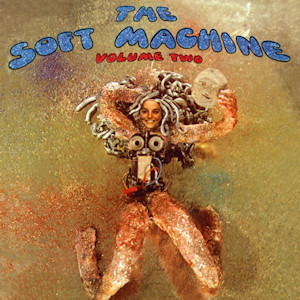
Soft Machine - Volume Two
★★★★★★
Soft Machine's proper debut in my mind. No words can quite describe how good this album is. It's avant-garde jazz rock with a psychedelic bend courtesy of Robert Wyatt's echo-ey vocals, paired with Ratledge's sublime piano and keyboard work, and Hopper's distinctive noisy bass sound. Comprised of two suites (one for each side), Volume Two tears through genres and ideas like wet paper and displays incredible composition and production in every second of its runtime, as well as the majority of it being in 7/4 for odd time signature lovers. On top of his beautiful vocals (my favorite of which being his Spanish in the section Dada Was Here), Wyatt also delivers supreme, almost symphonic drumwork, with several weird and wonderful solos scattered around the album. This is one of the heights of musical accomplishment, and you should go listen (or re-listen) to it right now.

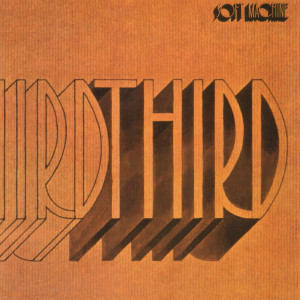
Soft Machine - Third
★★★★★★
Third is an immensely challenging album, yet it is generally the band's most praised and remembered record. I have to say that it deserves all of its recognition, though. Building upon the foundations of Volume Two, Third remains just as eclectic as its predecessor, being jazz, rock, psychedelia, even dipping into noise and electronic territory. It's an insane album, especially for 1970. Still, Soft Machine puts more future than past on display here, with the general structure of the record and its songs being closer to the more jazz-oriented instrumental work of their later albums rather than the psychedelic avant-rock infusions of their first two. Each side of the album is heavenly in their own ways, although I would have to consider the suite on Side 2, Slightly All The Time, my favorite. It didn't click immediately unlike some of their more accessible records, but Third is clearly nothing short of incredible throughout its entire duration, and once you get it, it's beautifully rewarding.

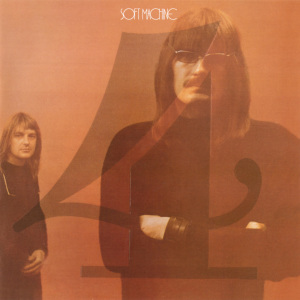
Soft Machine - Fourth
★★★★
Soft Machine's Fourth marks their complete foray into more of a jazz fusion sound. This is where a lot of fans get turned off, and it's kind of understandable coming off the impossible high of the previous two albums. Still, Fourth is an excellent album in its own right. Robert Wyatt may not have had much influence in the creative direction of this album, but his drumming remains as tasteful as ever. The other members, Hopper, Ratledge, and the newly-added Elton Dean all play their part as well. Probably the finest point of the album is the Virtually suite on side 2, particularly the first two parts. Go into this one expecting music more in the vein of Slightly All the Time and Out-Bloody-Rageous, rather than something like Moon in June or Rivmic Melodies.

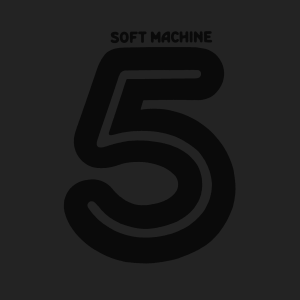
Soft Machine - Fifth
★★★★
Now this is a rather undersung entry in Soft Machine's catalog. Unfortunately, Robert Wyatt is gone, but luckily the drumming remains just as amazing in the capable hands of Phil Howard (on side 1) and John Marshall (on side 2). Elton Dean's saxello is even more prominent on this record... in general, I feel his saxello is a key to this era of Soft Machine's sound. Depending on the day, I would consider this one even better than Fourth, because I find Hopper's bass work more appealing. The opening track, All White, is a highlight, starting with an eerie brass opening and then evolving into a jam on an awesome bassline. Don't skip this one.

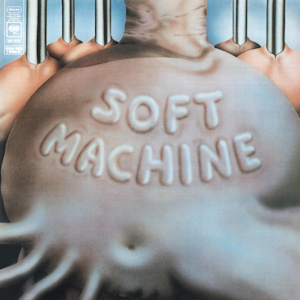
Soft Machine - Six
★★★
The band's first double album since Third, Six is comprised of a live side and a studio side, kind of like Ummagumma by Pink Floyd. Similar to Ummagumma, the live side is quite good, while the studio side is unfortunately disposable in my mind. The studio tracks are rather empty and unengaging, especially coming off the consistently stimulating live pieces. Even then, I don't consider the live side as good as anything off of Fourth or Fifth, although it's still definitely worth a listen. Ultimately, this is one of the less revisitable Soft Machine albums, although even at their worst, they're still quite a good band.

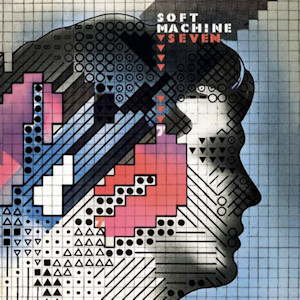
Soft Machine - Seven
★★★★
This is the exact moment where Soft Machine became Nucleus 2... and I'm only kind of joking. Still, being Nucleus is hardly a bad thing, and it shows with Seven. There's still a distinct Mike Ratledge touch to this one as well, present especially on side 2 of the album. Seven possesses a somewhat more modern sound than its predecessors, and although Hugh Hopper is tragically gone, Roy Babbington fills his shoes very well. There's a good balance of more "jazz-rocking" tracks on this one, and semi-ambient tracks driven by keyboards. Along with Fifth, definitely an underrated entry in Soft Machine's catalog.

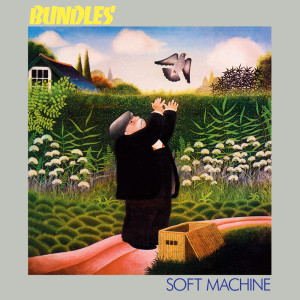
Soft Machine - Bundles
★★★★★
How DARE they call this album anything but "Eight"!? What in the world does Bundles even refer to? Tragically titled, this one is. That's just about the only bad thing I have to say about Bundles, though (and even then I'm just being facetious for the sake of the joke). This is most Soft Machine fans' favorite album that's not called Third, and it's not hard to see why. The legendary guitarist Allan Holdsworth is on this album and this album only, absolutely ripping through the strings in the Hazard Profile suite, with John Marshall following close behind with incredibly tight and exciting drumming. Mike Ratledge is mostly gone from the band at this point, but gives one last hurrah in my favorite track of the album, Land of the Bag Snake. The transition into said track is the stuff of legend. Easily the band's finest moment since Third, and deserving of its attention.

All album cover images are either from Wikipedia or Progarchives.
 Return to Directory...
Return to Directory...